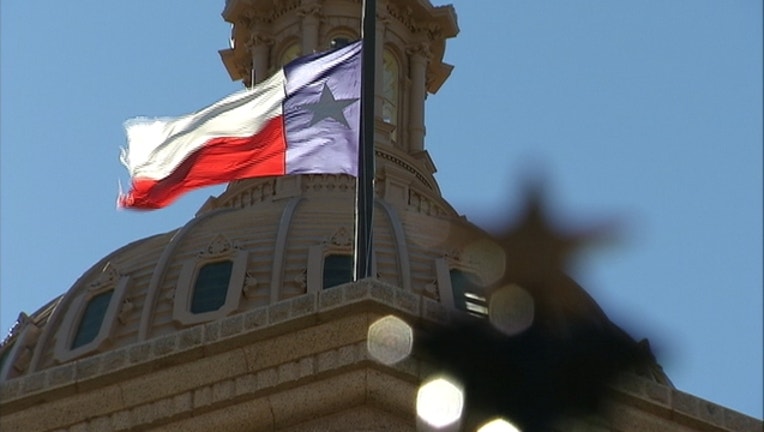Texas legislators seek funding ban for 'sanctuary cities'

AUSTIN, Texas (AP) - Texas Republicans eager to reinforce President Donald Trump's call for a crackdown on illegal immigration pushed to deny state money for local jurisdictions that refuse to cooperate, an issue Gov. Greg Abbott has declared to be an "emergency" facing the state.
The Republican-controlled state Senate on Thursday held its first hearing on a bill targeting so-called "sanctuary cities," a meeting that was disrupted several times by demonstrators singing songs or directing jeers at Abbott.
After more than 16 hours of testimony, the Senate State Affairs Committee approved the bill on a 7-2 party-line vote early Friday, the Austin American-Statesman reported. The move sends the measure to the full Senate next week.
The GOP governor, who didn't attend the hearing, has also called for the power to remove from office any local elected officeholder who resists the federal government on immigration issues.
The term "sanctuary cities" has no legal definition. The bill by Sen. Charles Perry, R-Lubbock, would punish local governments if police don't comply with requests from federal immigration enforcement officers to hand over immigrants already in custody for possible deportation.
"You don't get to decide which laws you like, which laws you will honor," A.J. Louderback, sheriff of Jackson County and president of the Sheriff's Association of Texas told the panel Thursday. "You don't get extra constitutional powers."
Individual sheriffs and police chiefs - particularly those in heavily Democratic areas of the state - have long opposed enforcing federal immigration law. Abbott has already ordered $1.5 million withheld from the Austin sheriff who has said the jails in the state's capital city would no longer honor most federal immigration detainers. That money supports projects such as family violence education and a special court for veterans, and Abbott has warned there could be more money cut.
Sheriff Sally Hernandez, an elected Democrat in Texas' most liberal city - the home of the University of Texas - has said her jails will only honor immigration holds on murder, aggravated sexual assault and human trafficking cases, a policy Abbott has called a threat to public safety. Hernandez's predecessor had allowed federal officials to use the jail to locate and detain immigrants suspected of being in the country illegally for possible deportation.
Perry said local authorities must enforce the law.
"This is not a deportation bill, this is a rule of law bill," Perry said. "We have almost a culture of contempt for federal immigration law."
But critics of the measure have said it will make immigrant communities fear police and drive crime victims and witnesses underground if they worry they will be swept up for deportation. Perry said the bill excludes crime victims and witnesses from being subject to immigration inquiries.
Sen. Eddie Lucio, one of only two Democrats on the State Affairs Committee, said he had "moral" objections to the bill.
"(This) undermines trust between police and immigrant communities. We risk further endangering women and children who fall prey to violence and extortion such as human trafficking," Lucio said.
Opponents of the bill packed the Senate public gallery and the hearing was disrupted repeatedly in the first two hours. One woman yelled, "Greg Abbott is a facist!" - prompting security to remove several people. Committee Chairwoman Joan Huffman warned that the chamber would be closed if the outbursts continued. Nearly 400 people had registered to testify on the bill for two minutes each.
Abbott's move to declare a ban on sanctuary cities as an emergency issue allows Texas lawmakers to move quickly and push it to the front of the line in a 140-day session that ends Memorial Day weekend. Lt. Gov. Dan Patrick has said he expects the Senate to pass the bill as early as next week and send it to the House.
Trump signed an order last week to withdraw funding from sanctuary cities that decline to cooperate with federal immigration authorities. It didn't specify what kind of money could be pulled. In California, San Francisco officials sued over the order, saying it was unconstitutional and an invasion of the city's sovereignty.

